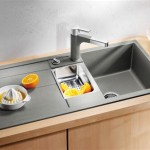Sink Drain Smells Like Mold
A sink drain emitting a musty odor often signals a mold or mildew problem. This unpleasant smell can permeate a bathroom or kitchen, impacting indoor air quality and potentially posing health risks. Understanding the causes, preventative measures, and remediation techniques for this issue is crucial for maintaining a clean and healthy home.
Biofilm Buildup
One of the most common culprits behind a moldy sink drain smell is the accumulation of biofilm. Biofilm is a slimy substance composed of bacteria, fungi, and other microorganisms that thrive in moist environments. Sink drains, with their constant exposure to water and organic matter, provide an ideal breeding ground for biofilm. As this biofilm grows, it can emit volatile organic compounds (VOCs), which contribute to the musty, mold-like odor.
Trapped Food Particles
Food particles, especially in kitchen sinks, can become trapped in the drain and decompose. This decomposition process fuels microbial growth, including mold and mildew, leading to unpleasant odors. Grease and oils further exacerbate the problem by creating a sticky trap for these particles.
Clogged P-Trap
The P-trap, the curved section of pipe beneath the sink, is designed to hold a small amount of water, creating a seal that prevents sewer gases from entering the home. A clogged P-trap, however, disrupts this seal and can allow sewer gases, which often smell like rotten eggs or mold, to escape into the room.
Mold Growth in the Drainpipe
While less common, mold can grow directly on the inside of the drainpipe, particularly in areas with persistent moisture. This is more likely to occur in older homes with metal pipes or in drains that experience frequent clogs. The mold colonies can release spores and VOCs, contributing to the musty smell.
Standing Water in the Garbage Disposal
Garbage disposals can harbor food particles and moisture, creating a conducive environment for mold growth. Standing water in the disposal further exacerbates the issue. Improper cleaning or infrequent use can lead to a buildup of mold and a persistent unpleasant odor.
Vent Pipe Issues
The plumbing vent pipe allows for proper drainage and prevents sewer gases from building up. A blocked or improperly functioning vent pipe can disrupt the airflow, leading to slow drainage and the release of sewer gases, which can be mistaken for a moldy smell.
Preventing Sink Drain Odors
Preventing moldy sink drain odors involves regular cleaning and maintenance practices. Flushing the drain with hot water after each use can help remove food particles and prevent buildup. Regularly cleaning the garbage disposal with baking soda and vinegar or a specialized cleaner can eliminate odors and prevent mold growth. Pouring a mixture of baking soda and vinegar down the drain followed by hot water can also help break down biofilm and remove trapped debris. Additionally, ensuring proper ventilation in the bathroom or kitchen can help reduce moisture buildup, discouraging mold growth.
Remediation Techniques
Addressing a persistent moldy sink drain odor requires more targeted remediation techniques. Disassembling and cleaning the P-trap can remove clogs and eliminate trapped debris. For more severe cases, a plumber may be needed to inspect the drainpipe for clogs or mold growth. They may use specialized tools to clear the blockage or recommend replacing sections of the pipe. For garbage disposals, regular deep cleaning and ensuring proper drainage can resolve odor issues. Treating the drain with a commercial drain cleaner designed to kill mold and mildew can also be effective.
Identifying the Source
Pinpointing the exact source of the moldy smell is crucial for effective remediation. Checking the garbage disposal, P-trap, and surrounding areas for visible mold growth can help narrow down the source. If the smell is emanating from the drain itself, it may indicate a biofilm buildup or mold growth within the drainpipe.
Professional Assistance
While many drain odor issues can be resolved with home remedies, persistent or severe problems may require professional assistance. A plumber can diagnose the underlying cause of the odor, utilizing specialized tools and expertise to address complex issues such as blocked vent pipes or extensive mold growth within the plumbing system.

How To Remove Musty Odors From Kitchen Sink Water Damage

What Causes Black Mold In Sink Drains How To Get Rid Of It

How To Clean A Stinky Sink Drain

What Causes Black Mold In Sink Drains How To Remove It

Deodorize A Kitchen Sink That Smells 5 Ways

How To Effectively Remove Black Mold In Sink Drains Damage Control

How To Eliminate Sink Drain Odor By Cleaning The

Why Does My Water Smell And Stain Appliances

What To Do When The Bathroom Sink Smells Like Mildew

What S That Plumbing Smell Common Causes Fixes







